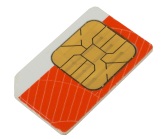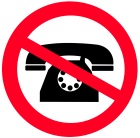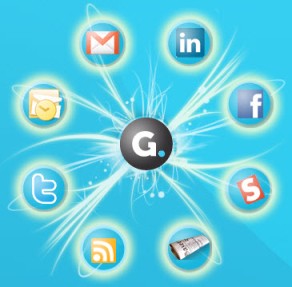I have recently been forced to plan how to migrate all my contact information away from my current employer-sponsored devices onto a temporary holding bin and then onwards to new address books. This has made me realize how broken the whole address book concept is nowadays. Let me explain by starting from the very beginning.
Becoming digital
I bought my first mobile phone in 1997 (see the full timeline here). Prior to this I had absolutely no digital contact data assets whatsoever: just a rolodex, a few paper lists of addresses and the good ol’ memory. Sure, the world was a much smaller place back then, and as a high school student living in the offline era there wasn’t that many people who you didn’t either meet at school or after school on a weekly basis. It was the villager way of life and I think we were all quite happy with it back then.
 Mobile phones brought us the concept of electronic phone books, with SIM cards as the media used for transferring these from one device to another. Email client applications like Eudora and Outlook Express gave us the option to store email addresses as contacts in their own address books. Pretty soon the phones began to connect with your PC through a cable and handy software like Nokia PC Suite (don’t get me started on that one…). This meant you now had the problem of several mismatching address books on your computer, so the whole contact management concept started to become painful not just for corporations but private persons as well.
Mobile phones brought us the concept of electronic phone books, with SIM cards as the media used for transferring these from one device to another. Email client applications like Eudora and Outlook Express gave us the option to store email addresses as contacts in their own address books. Pretty soon the phones began to connect with your PC through a cable and handy software like Nokia PC Suite (don’t get me started on that one…). This meant you now had the problem of several mismatching address books on your computer, so the whole contact management concept started to become painful not just for corporations but private persons as well.
During the past few years we’ve seen some improvement on the situation, thanks to the wide availability of mobile data connections and push email services in the corporate world. If you keep your personal contacts and business contacts in the same address book, updating the records in MS Outlook and synchronizing data through MS Exchange (replace with your favorite non-Redmond software) has made phone number and email address management almost a non-issue.
What’s the problem?
Well, while we now have fairly decent solutions for address book sync and some established formats to make interoperability across platforms less painful, these are essentially solutions for the wrong problem. You see, not only have the address books become digital but so has life. Here’s my personal evidence of this:
- Everybody and their dog is on Facebook. With hundreds of millions of registered profiles, we’re far beyond the point where you’d need to make guesses about whether social networks will really catch on or not. They came, they saw, they conquered. Sure, you might be on VK or Renren instead of FB. That makes no difference, social networks are now as universal as SMS.
- I have “contacts” who don’t know me, nor do I know them IRL. The may be bloggers or twitterers who I follow regularly, which means they’re relevant people to me on a much higher frequency than old acquaintances in the address book who I may not interact with even once per year.
- A job is no longer for life. Knowing where someone worked 3 years ago, what his title was and how to reach him through land line or snail mail is of decreasing relevance to anyone. I’m more interested in knowing where you’re working today and with whom you’ve worked with, which is what LinkedIn was invented for (7 years ago already).
 The number of phone calls I make is dropping every year. I’ve reached the point where calls are the least preferred method of communication in my mobile “phone”. No matter how much the mobile revolution initially increased the amount of phone calls, it will only decline from here onwards. Meeting in person is effective for establishing shared understanding, exchanging textual information asynchronously is great for managing details, reacting to synchronous voice communication requests (a.k.a. phone calls) is, well… a distraction I like to minimize. The phone call is dead.
The number of phone calls I make is dropping every year. I’ve reached the point where calls are the least preferred method of communication in my mobile “phone”. No matter how much the mobile revolution initially increased the amount of phone calls, it will only decline from here onwards. Meeting in person is effective for establishing shared understanding, exchanging textual information asynchronously is great for managing details, reacting to synchronous voice communication requests (a.k.a. phone calls) is, well… a distraction I like to minimize. The phone call is dead.- Christmas is pretty much the only reason for me to use postal services nowadays. Be it cards or gifts, I’d prefer to replace them both with bits and services. Similarly, if you’re arranging a party, you’ll probably send an FB invite with the relevant information. Recording you home address is therefore not so relevant for me, whereas knowing your current/recent location through Foursquare might be much more interesting.
When I think about these facts, then glance at my Outlook address book, I see two worlds collide. Yes, may both be about people and communication, but that’s pretty much where the similarities end.
How can we manage?
What’s different in this brave new digital life when compared to the old offline world is that the number of channels and players is significantly higher and it will just keep on increasing. The possibilities become ever greater and so will our pains with the traditional address books. Tim O’Reilly has been writing about the missing Web 2.0 Address Book in 2007, others have speculated about the data management concepts it requires in 2010. If we’re lucky, at this rate the solution will arrive maybe a few years after HTML5 has become mainstream. In short, we’ve got to stop waiting for a new solution and find a way to live with the contacts we have for now.
 For my task at hand, I chose Gist as the web application to take care of my immediate contact data management needs. Like any contact manager, it promises the same old “one place for all contacts” Holy Grail. What the service does is it asks you for your Facebook, Twitter and Gmail account authorization, then pulls in the contacts from each service and tries its best to merge them. LinkedIn contacts can be imported through a file, as can naturally Outlook data. In addition, there’s also a ranking algorithm that tries to identify the importance of each contact based on communication history, and by also allowing you to adjust the score, so the most frequent interactive connections float to the top.
For my task at hand, I chose Gist as the web application to take care of my immediate contact data management needs. Like any contact manager, it promises the same old “one place for all contacts” Holy Grail. What the service does is it asks you for your Facebook, Twitter and Gmail account authorization, then pulls in the contacts from each service and tries its best to merge them. LinkedIn contacts can be imported through a file, as can naturally Outlook data. In addition, there’s also a ranking algorithm that tries to identify the importance of each contact based on communication history, and by also allowing you to adjust the score, so the most frequent interactive connections float to the top.
Is it the new address book then? Who knows, I’m sure there’s also many other valid contenders besides Gist out there. The main point is that this approach of utilizing networks and integrating online channels blows the Outlook contact list right out of the water, no doubt about it. This is what’s relevant to me in 2010. Not the daunting task of recording phone numbers and street addresses completely separately from the interactions and channels. The information and the interactions are out there, just bring the data to me and let me enrich it as new connections get established and new channels emerge. Give me an app I can install on my Android phone and a plug-in I can use when viewing Gmail. Allow me to discover more about my contacts through suggestions of in which networks they are present in.
I started with the assumption that I wanted to update and keep my address books in order. It turns out this wasn’t at all what I wanted to do. What I really wanted was a way to keep in touch.
A healthy dose of reality
When going through some of the ancient entries originating from my SIM cards, I realized something which can be all too easy to forget while sitting in front of your PC: not everybody is online. I’d like to say “not yet”, but that would be perhaps too optimistic. Considering how young the trend of being present in the web with your real name and real thoughts still is, even in the short history of the mainstream internet, the current divide between who “are” in the web and who’re just consuming the content is quite understandable. Blogging requires effort, LinkedIn may not fit every kind of profession and Twitter is something most people can’t get their head around yet. The FB boom is covering up the fact that most people are not yet ready to adopt the digital lifestyle. Fair enough, I’ll keep you as an offline entry in my contact list, waiting for the day when you will be ready.



… But I still have a hardcopy address book – getting everyone in one place is a massive task. Maybe someday I will get around to it – or not. I am still one of Itella’s best customers as I have plenty of relatives across the pond living in rural areas who have still have to use dial-up to use the internet… And yes, I have noticed a trend – less phone calling and less SMS than in years past. Funny to think that 12 years ago, I was a greenhorn in all this stuff, now I’m a user, but not a heavy one…